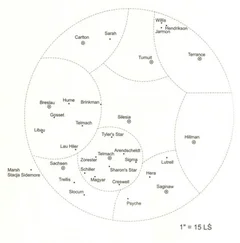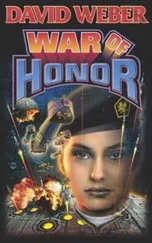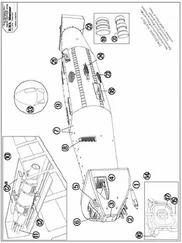David Weber - Ashes of Victory
Здесь есть возможность читать онлайн «David Weber - Ashes of Victory» весь текст электронной книги совершенно бесплатно (целиком полную версию без сокращений). В некоторых случаях можно слушать аудио, скачать через торрент в формате fb2 и присутствует краткое содержание. ISBN: , Издательство: Baen Publishing Enterprises, Жанр: Фантастика и фэнтези, на английском языке. Описание произведения, (предисловие) а так же отзывы посетителей доступны на портале библиотеки ЛибКат.
- Название:Ashes of Victory
- Автор:
- Издательство:Baen Publishing Enterprises
- Жанр:
- Год:неизвестен
- ISBN:0-671-31977-9
- Рейтинг книги:4 / 5. Голосов: 1
-
Избранное:Добавить в избранное
- Отзывы:
-
Ваша оценка:
- 80
- 1
- 2
- 3
- 4
- 5
Ashes of Victory: краткое содержание, описание и аннотация
Предлагаем к чтению аннотацию, описание, краткое содержание или предисловие (зависит от того, что написал сам автор книги «Ashes of Victory»). Если вы не нашли необходимую информацию о книге — напишите в комментариях, мы постараемся отыскать её.
Ashes of Victory — читать онлайн бесплатно полную книгу (весь текст) целиком
Ниже представлен текст книги, разбитый по страницам. Система сохранения места последней прочитанной страницы, позволяет с удобством читать онлайн бесплатно книгу «Ashes of Victory», без необходимости каждый раз заново искать на чём Вы остановились. Поставьте закладку, и сможете в любой момент перейти на страницу, на которой закончили чтение.
Интервал:
Закладка:
Another ripple of laughter answered her, and she nodded to Kriangsak.
"Admiral Kriangsak, with Captain Garrison's able assistance, has very kindly constructed a small tactical problem for you, Ladies and Gentlemen," she informed them, and several apprehensive glances flickered towards Kriangsak, who simply smiled benignly. "We'll be dividing into three teams. Admiral Kriangsak will serve as the adviser to one team, Captain Garrison will advise the second, and Captain Thoma—" she nodded to the red-haired woman whose tunic, like Honor's own when she was in uniform, bore the bloodred ribbon of the Manticoran Cross "—will advise the third. Captain Henke and Commander Jaruwalski will play the role of referees and umpire the exercise."
"And you, Your Grace?" Jaruwalski asked, as innocently as if she didn't know already.
"And I, Commander," Honor told her with unconcealed relish, "will command the op force." One of the midshipmen groaned, and Honor gave them all a wicked smile. "This one is pass–fail, Ladies and Gentlemen. If you still have a ship left at the end, you pass. Otherwise..."
She let her voice trail off menacingly, then bestowed another smile upon them.
"And on that note, people, let's be about it!" she told them briskly.
Chapter Twenty-Four
"Well that certainly went much better. In fact," Scotty Tremaine said judiciously, gazing at the scores for CLAC Squadron Three's latest engineering inspection, "one might even say that it went quite well, mightn't one, Sir Horace?"
"One might," Sir Horace Harkness growled back. "I guess. Sort of."
Unlike the youthful commander, the burly warrant officer's expression was not a happy one. Indeed, an objective observer, if asked to describe it in one word, would have been hard-pressed to choose between disconsolate, surly, or just plain disgusted. The less charitable might even have suggested "petulant."
Despite the fact that the Book said the senior engineer in any LAC wing was supposed to be a commissioned officer, an awful lot of engineers, at both the squadron and wing levels, held warrants rather than commissions. Normally, a warrant was offered to a noncom who, because of his special knowledge or depth of expertise, or because he was needed for duties normally assigned to an officer, had to be placed on a footing of equality with at least the more junior of the commissioned officers with whom he dealt. Warrant officers stood outside the executive line of command, for the WOs might actually be thought of as the noncommissioned equivalent of staff officers. Even the design of their uniforms indicated their unique status, for their tunics were tailored like those of officers, but they carried sleeve stripes (although in silver, not gold) similar to those of petty officers and silver or gold crowns, depending on grade, as collar insignia. In addition, each WO's sleeve carried the insignia of his specialty above the stripes.
A WO-1 was equivalent to a junior-grade lieutenant in a nonline specialty, while a chief warrant officer, or WO-3, like Sir Horace Harkness, was equivalent to a senior-grade lieutenant. A master chief warrant officer, or WO-5, was actually equivalent to a full commander... and had reached the highest rate any member of the Navy could attain without a formal commission. Given the basis on which they were offered their warrants in the first place, a WO was usually somewhat older than the average commissioned officer of his equivalent rank. On the other hand, the more youthful commissioned officers who found themselves warrant officers' legal superiors knew those WOs had been given their warrants expressly because they were so good—as in, much better than any wet-behind-the-ears, fresh-out-of-Saganami-Island, young whippersnapper could hope to be, though he might someday approach their abilities, if he worked really hard and listened to the voice of experience when it deigned to share its wisdom. As a result, the RMN's warrant officers carried far more clout than most civilian observers would have expected.
Nonetheless, BuPers really had wanted commissioned engineers for any slot above the individual LAC squadron. BuPers, however, had been disappointed, and the reason its desires had never been more than a rather wistful hope was simple enough. The sudden, explosive expansion of the Royal Manticoran Navy's light attack craft strength after decades of steady build down had simply caught the Fleet short of LAC engineers. Severely short, as a matter of fact.
It was certainly true that LACs allowed enormous reductions in manpower on a per-weapon basis as compared to regular, hyper-capable warships. By the same token, however, the manpower they did require tended to be more than a bit specialized. Nursemaiding one of the new fission plants, for example, was just as complex a job as running one of the far larger fusion plants aboard a hyper-capable combatant. The engineer running it might have instrumentation that was at least as good, and a lot more (and more sophisticated) remotes, proportionately speaking, but he was still one man, with only a single human assistant, running an entire fission plant, two impeller rooms, environmental, not just two but three sets of sidewall generators—four, actually, on the even newer Ferret -class LACs— and handling all power allocation and repairs (if needed) for at least one revolver missile launcher and magazine, point defense, sensors, ECM, and one humongous graser. The tac officer and captain had similarly outsized workloads, and their remotes and AIs weren't the same as having real live assistants to help spread the burden. To be sure, their instrumentation and computer support set new standards for capability and user-friendliness, but it was still one hell of a load to carry. It was also one which required high and consistent skill levels, since LAC crews were too small to rely on someone else catching a mistake, and the manning requirements for each bird were repeated over a hundred times per wing.
All of which meant the Navy had discovered it had no choice but to reach down into the ranks of its noncoms to find the warm and, especially, competent bodies it needed. At least BuPers had been able to keep up with the demand so far without diluting skill levels, and the shutdown of so many forts should ease much of the pressure shortly. But it hadn't eased it yet , and the fact that the petty officers BuPers was tapping for the new slots and offering warrants to tended to be older and more experienced than the commissioned officers junior enough to be assigned to the LACs also offered a useful leavening of seasoned judgment to rein in the youthful exuberance that was part of the emerging "LAC jockey" mentality. That was good, but some of the purists among the commissioned officers deeply resented the sudden mass elevation of senior chiefs, chiefs, and even a few PO 1/cs to fill slots that ought properly to have been filled by lieutenants and lieutenant commanders.
That attitude, in Sir Horace Harkness' considered opinion, was stupid. Actually, he usually appended a few colorful adverbs to his opinion, if only to himself. It was also hurting the acceptance of the new LACs and their carriers—or, at least, the notion that "real" officers should associate with the jumped-up riffraff who crewed them.
The RMN's officer corps, as a whole, was among the most capable in space, but that didn't mean it wasn't riddled with its own careerists. And in those careerists' view, nothing so minor as a war for survival should be allowed to interfere with the appointed unfolding of God's plan for the universe... otherwise known as the seniority system. They'd always hated officers like Honor Harrington for their meteoric rises and the way they kept jumping the zone, leapfrogging those ahead of them on the basis of mere achievement and, in the process, pushing back the regular, seniority-based promotions on which any good careerist relied. But now they had something even worse to worry about—a situation in which noncommissioned peons were receiving warrants in job lots in order to occupy slots in which their more deserving (and commissioned) betters could otherwise have been accruing the seniority which would lead to the promotions they so earnestly desired. Even worse, a lot of those ex-noncom warrant officers were almost certain, eventually, to wind up exchanging the warrants they ought never to have been offered in the first place for regular commissions. Not only that, the miserable wretches and their irritating LAC carriers were going to be in the thick of the new offensives, if the tea leaf-readers had gotten it right, which meant they would also be the ones picking up the medals, being mentioned in dispatches, and generally acquiring all the other career-enhancing benefits of combat experience. (Of course, they would also be getting shot at—a lot—while zipping around in the most fragile warships in the RMN, so perhaps, on more mature consideration, that last point could be considered a wash.)
Читать дальшеИнтервал:
Закладка:
Похожие книги на «Ashes of Victory»
Представляем Вашему вниманию похожие книги на «Ashes of Victory» списком для выбора. Мы отобрали схожую по названию и смыслу литературу в надежде предоставить читателям больше вариантов отыскать новые, интересные, ещё непрочитанные произведения.
Обсуждение, отзывы о книге «Ashes of Victory» и просто собственные мнения читателей. Оставьте ваши комментарии, напишите, что Вы думаете о произведении, его смысле или главных героях. Укажите что конкретно понравилось, а что нет, и почему Вы так считаете.












